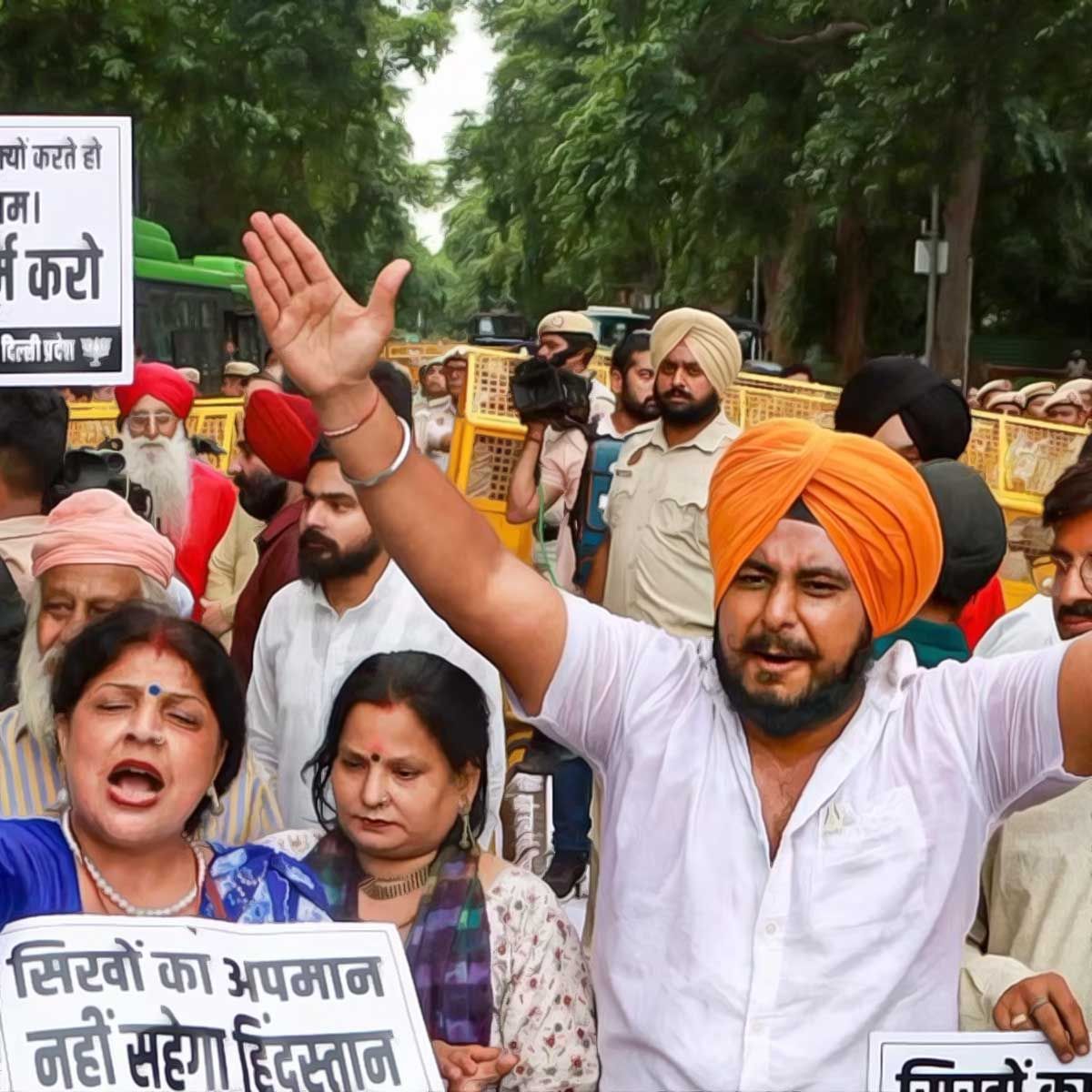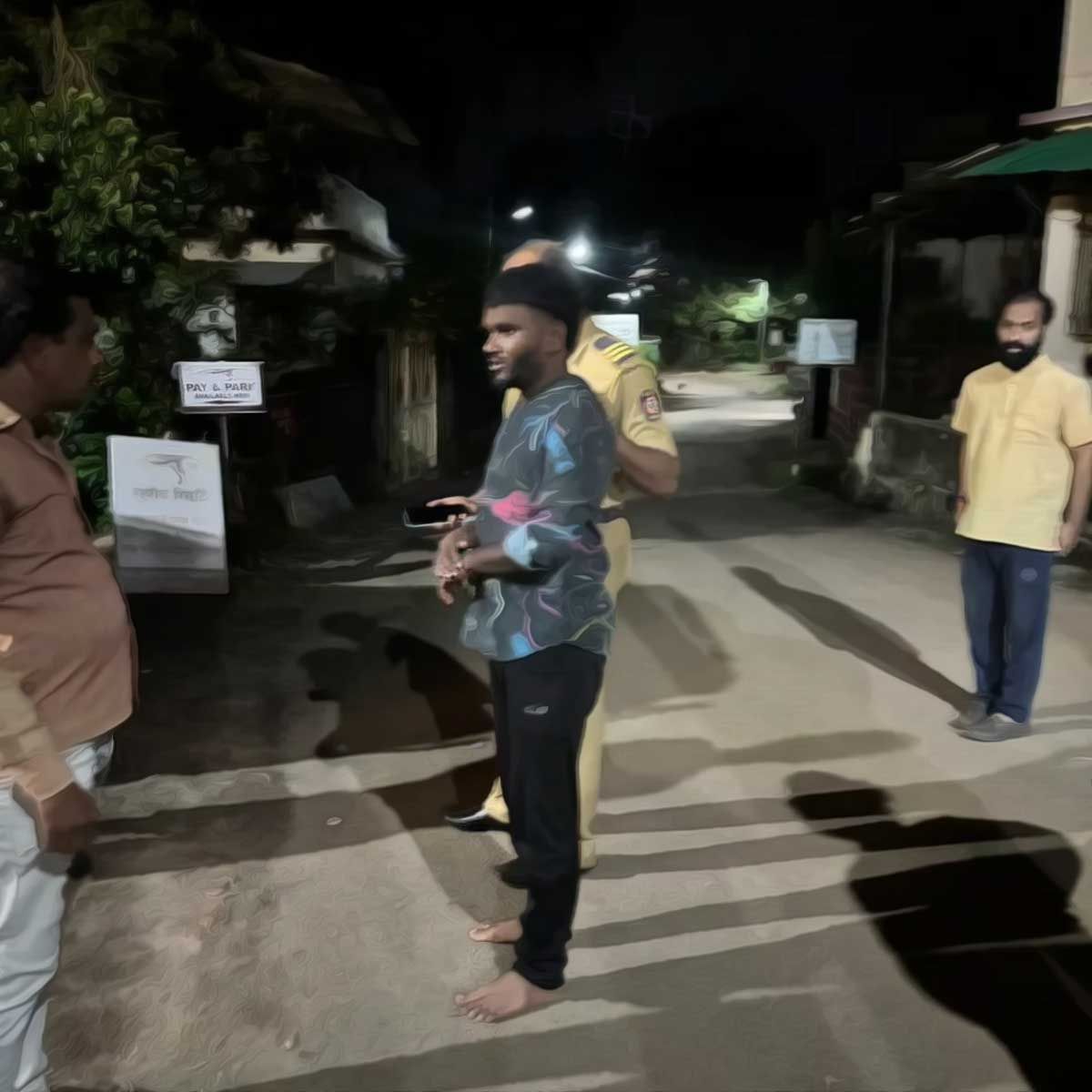More Coverage
Twitter Coverage
JOIN SATYAAGRAH SOCIAL MEDIA
"Narrative Navigators": In the Israel-Hamas conflict, the BBC, after spreading misinformation on a Gaza hospital event, releases a guide on discerning disinformation, the network later conceded a correspondent's mistake in blaming an Israeli airstrike

In what can only be described as a masterclass in irony, the British Broadcasting Corporation (BBC) took it upon themselves to educate the masses on the pitfalls of disinformation on social media. This would have been a laudable effort, had it not been for the fact that just recently, the very same broadcasting giant was caught in the act of sharing unverified news regarding a Gaza hospital attack.
|
On Sunday, 22nd October, BBC, amidst its stellar reputation for consistently delivering unbiased news (sarcasm intended), released a video. This video proclaimed to impart 'basic facts' on distinguishing genuine information from fabricated stories, particularly in light of the recent attacks orchestrated by Hamas on Israel.
While the digital age has certainly made information dissemination faster and more widespread, it has also brought with it the menace of fake news. And who better to guide us through these murky waters than BBC? After all, their recent faux pas has made them somewhat of an expert in the domain of 'what not to do' when it comes to authentic reporting.
It's intriguing to think about the thought process behind this initiative. Was it a genuine effort to right their wrongs? Or perhaps, a sly attempt at satire? One can't help but wonder if the next installment might revolve around "How to retract a story gracefully after being caught red-handed."
As viewers and consumers of news, one would expect institutions with the stature and legacy of BBC to uphold the highest standards of journalistic integrity. Alas, it seems we might have to wait a tad longer for that dream to materialize. In the meantime, we have this delightful primer on spotting disinformation, courtesy of the masters themselves.
|
Marianna Spring, who proudly dawns the title of 'disinformation and social media correspondent' at the BBC, weighed in on the recent turmoil between Israel and Gaza. She opined, "The conflict between Israel and Gaza has been full of claims and counterclaims from both sides about what is happening on the ground. Those claims have been turbocharged by social media, which has been flooded with pictures and videos. There’s lots of misleading and false information, and conspiracy theories too." Now, this statement, under ordinary circumstances, might have carried substantial weight. After all, the world of social media is indeed rife with misleading narratives.
However, the irony wasn't lost on many when it was the same BBC that found itself in hot waters for its own tryst with 'misleading information'. Known globally and historically for its journalistic excellence, the BBC had quite the stumble when it shared, without verification, a report on an Israeli airstrike supposedly being responsible for a rocket attack on a Gaza hospital. This attack was said to have resulted in a staggering 500 casualties, a number that was soon contested and deemed inaccurate.
In this digital age, where every click can lead to a rabbit hole of misinformation, it's paramount for reputed institutions to lead by example. But when they themselves fall prey to the very pitfalls they warn others of, it becomes a potent recipe for satire. One might wonder, if BBC's guide to spotting disinformation was available to its own editorial team before they broadcasted the contentious Gaza hospital report. Perhaps, they could have been their first success story!
|
In a humbling move, the BBC conceded to an oversight by one of its live air correspondents. The journalist, in the heat of the moment, incorrectly hinted that a rocket attack on a Gaza hospital could have been the result of an Israeli airstrike. The corporation stated on its official page, "We accept that even in this fast-moving situation it was wrong to speculate in this way, although he did not at any point report that it was an Israeli strike."
Amid the tense atmosphere following a deadly explosion in Israel, BBC's Jon Donnison, a face many viewers recognize, lent his voice to the clamor of speculations. He said, "It’s hard to see what else this could be really, given the size of the explosion, other than an Israeli airstrike or several airstrikes."
This episode underscores the profound responsibility that global broadcasters like the BBC hold. In an era where every comment can amplify a narrative, speculations, especially ones from esteemed journalists, can shape perceptions, and unfortunately, misconceptions. If only the corporation had heeded its own advice on disinformation. Speculations, after all, aren't facts.
|
A Misfire and a Media Blitz
The Al-Ahli Hospital in Gaza became the center of a media storm on 17th October, when a rocket plummeted into the facility. The immediate aftermath was dominated by claims and counterclaims about the origin of the rocket, casting a web of confusion that resonated across the world.
Hamas was quick to place the blame squarely on Israel, claiming an Israeli rocket was responsible for the devastation and the tragic loss of 500 Palestinian lives. However, as the dust settled and investigations began, the reality appeared starkly different.
An independent evaluation would later confirm that it wasn't an Israeli rocket, but rather one from the Palestinian Islamic Jihad that misfired and hit the hospital. The Israeli Defense Forces (IDF) were swift in highlighting this fact, noting that the misfiring took place around 6:59 PM local time on the day of the incident at the Al-Ahli al-Arabi Hospital.
Despite being privy to the reality of the misfire, Hamas chose to continue its media narrative, accusing Israel of the attack. The ensuing media onslaught underscored the complex dynamics of information warfare in the modern age, where truth can sometimes become the first casualty.
|
The Israeli Defense Forces (IDF) didn't hold back in their response to the controversial rocket attack on the Al-Ahli Hospital. In a meticulously arranged press briefing, aerial photographs were unveiled. These images painted a clear picture: the main damage was outside the hospital, particularly targeting the parking area. Further visuals of the scorched parking lot hammered home the IDF's narrative. The explosion's aftermath was attributed to the significant volume of rocket fuel within the projectile as it veered off course, crashing short of its aimed destination.
Meanwhile, the BBC finds itself engulfed in a maelstrom of criticism. Their reluctance to label Hamas as a "terrorist organisation" – a title endorsed by the UK, the US, the EU, and Israel – has drawn the ire of many. Defending its editorial stance, the BBC previously elucidated that using the term "terrorist" would equate to them taking sides.
The situation's gravity was accentuated post-7th October when Hamas instigated a series of attacks along the Israel-Gaza border, leading to a tragic loss of thousands in Israel. This escalation had tangible effects in London, where on 16th October, the BBC's headquarters witnessed hundreds rallying outside, their singular demand echoing loudly: "Name Hamas as terrorists."
|
An Open Letter of Gentle Guidance to the BBC
Dear British Broadcasting Corporation (BBC),
You see, BBC, there's been an intriguing shift in your reporting style of late. The kind one notices when their favourite chef starts adding a bit too much salt to their once-signature dish. Your recent incident involving the Gaza hospital attack has added an unpalatable flavour to the broth.
Let’s have a moment of honesty. In the great game of 'Spot the Fake News', while it's been amusing to watch you occasionally trip over your shoelaces, one wouldn't expect the referee – that's you, BBC – to join in the players. We understand, really. It’s a digital age, and catching eyeballs often mean catching the next trending hashtag. But, dear BBC, when you try to teach the masses on how to spot disinformation on, say, the Israel-Hamas conflict, might we suggest a preliminary workshop in-house?
It's not just about being accurate; it's about understanding the weight of your voice. A whisper from you can become a worldwide shout, a tiny slip can lead to avalanches of misinformation.
|
Your choice of labels, or the lack thereof, for specific organisations, has also raised a few eyebrows. Perhaps it's a part of some avant-garde linguistic exercise? But for the layman, if it looks like a duck, quacks like a duck... well, you know the rest. The world is quite binary in this regard, even if it involves taking sides occasionally. If entities are identified as 'terrorist organisations' by major global bodies, maybe, just maybe, there's some credence to it? But then again, who are we to decide labels? After all, in the era of rebranding, maybe you’re onto something. Tomato, Tomahto.
Jokes aside, dear BBC, there is a reason this letter focuses on the concept of sincerity. Journalism is not just about presenting news; it's about upholding a legacy of trust. It's about ensuring that every word echoed is not for monetary gains or appeasing certain factions. In an era
where shadows of bias can easily creep in, it’s imperative to be the beacon of light that shows the path of truth to its viewers. Monetary gains may provide a temporary sheen, but in the long run, it's the trust and credibility that shine brightest.
In the world of journalism, biases are like the dark clouds that obscure the shining sun of truth. And while the leftists, Marxists, and islamists may dance in the rain of this obscured truth, for the time being, remember - the sun always comes out eventually. Every time a bias is removed, the world gets a little brighter, the news a bit truer.
|
Now, I know journalism is a challenging field. The pressures of deadlines, sources, and always staying ahead can be overwhelming. But if there's one institution that can rise above these challenges, it's you. So, here's a quirky thought - why not revisit the roots? Remember the time when the truth was sacrosanct, and the news was delivered with sincerity, free from the shackles of appeasement or monetary gains?
BBC, in your storied history, you’ve been a beacon for many, guiding them through the fog of misinformation. Let this minor blip be a reminder, not of your fallibility, but of the significant responsibility you bear. So, dust off that old ethics handbook, put on those reading glasses if you must, and delve deep into the annals of objective, bias-free journalism.
In conclusion, let's circle back to the culinary analogy: A good chef knows when they've added too much salt. But a great chef? They not only rectify it but elevate the dish to levels unseen. Here's to hoping you add just the right ingredients moving forward.
With all due respect and a pinch of salt,
Citizen of India, that is Bharat.
|
 Support Us
Support Us
Satyagraha was born from the heart of our land, with an undying aim to unveil the true essence of Bharat. It seeks to illuminate the hidden tales of our valiant freedom fighters and the rich chronicles that haven't yet sung their complete melody in the mainstream.
While platforms like NDTV and 'The Wire' effortlessly garner funds under the banner of safeguarding democracy, we at Satyagraha walk a different path. Our strength and resonance come from you. In this journey to weave a stronger Bharat, every little contribution amplifies our voice. Let's come together, contribute as you can, and champion the true spirit of our nation.
 |  |  |
| ICICI Bank of Satyaagrah | Razorpay Bank of Satyaagrah | PayPal Bank of Satyaagrah - For International Payments |
If all above doesn't work, then try the LINK below:
Please share the article on other platforms
DISCLAIMER: The author is solely responsible for the views expressed in this article. The author carries the responsibility for citing and/or licensing of images utilized within the text. The website also frequently uses non-commercial images for representational purposes only in line with the article. We are not responsible for the authenticity of such images. If some images have a copyright issue, we request the person/entity to contact us at This email address is being protected from spambots. You need JavaScript enabled to view it. and we will take the necessary actions to resolve the issue.
Related Articles
- After being slammed by Indians for fake news, Rana Ayyub is now being blasted by Saudis for supporting terrorists in her tweet "Yemen is bleeding and there is nobody to stop the bloodthirsty Saudis”
- Crowdfunding platforms used by Kanhaiya Kumar, Dr Kafeel Khan and Saket Gokhale disappeared mysteriously after collecting funds from public
- "Fact-Fiction's Frontier": American journalist Amy Mek warns of AltNews' Mohammed Zubair's attempts to tarnish her and other conservatives for revealing Hamas propaganda, accuse him of peddling disinformation, and potential ties to anti-India funders
- Bajrang Dal's peaceful rally in Mewat (mini Pakistan) is painted panic mongering by Islamist Media
- Publishing house The Hindu, in its English magazine 'FrontLine' officially endorsed Hamas violence, justifying brutal acts of terrorism as victimhood, this stance potentially lays the groundwork for future genocides in the name of vengeful holy war
- 20 YouTube channels and 2 websites blocked by the Indian Govt for having links with Pakistan to spread anti-India propaganda
- Vidya Krishnan, columnist for ultra-leftist Caravan Magazine, The Atlantic, goes hysterical and calls Indian diaspora ‘termites’ over ‘Hindu homeland’ rant
- In her chronic hate for Modi, the Congress spokesperson Dr. Shama Mohamad spread blatant lies about Prime Minister and India’s state-of-the-art pavilion at Dubai Expo 2020, netizens bust false claims by sharing video
- Trendy Anti-Modi Instagram account ‘F*ckBJP’ comes undone, accused of abuse and molestation
- "Fake news: the wolf in the media's clothing": Refuting claims of Saket Gokhale and others of 300% budget overshoot on G20 Summit, Govt asserted that the 'expenses directed towards permanent asset creation', shedding light on infrastructural developments






















